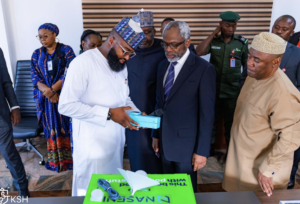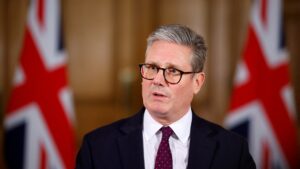
The Director-General of the Debt Management Office (DMO), Mrs. Patience Oniha, has urged state governments and the Federal Capital Territory (FCT) to prioritise debt management strategies to enable them better manage, access debt and service debt.
She also stressed the need for state governments to always get the appropriate support from their legislative arm and institutions in order to be able to access debt easily.
She said this yesterday at a debt management workshop on borrowing guidelines for sub-nationals in Lagos, which had in attendance Commissioners of Finance, Accountant Generals and some legislative members from different states in the country.
She also argued that the federal government has been reducing its external borrowing in the past four years and was committed to sustaining the momentum.
Oniha said: “This calls for state governments and the FCT to prioritise the introduction and adoption of debt management strategies supported by appropriate legislations and institutions and the regular conduct of Debt Sustainability Analysis exercises.
“The DMO implores state governments and the FCT to take advantage of the support being provided by the DMO on debt management.”
Speaking in an interview on the sidelines, she added that it was important for states to properly generate revenue to service their debts.
“Also, it is not always about just borrowing, you need to manage your debt to ensure that you can service it and so that,” she added.
On what prompted the workshop, she said: “The importance of the workshop is that debt is an important fiscal instrument in a country’s economic health and we need to manage it to ensure that we achieve the benefit.
“At the federal level, we have a debt management office that manages public debts. The state governments and the FCT are also allowed to borrow, but to borrow under certain conditions.
“Our experience working with them is that there is a significant need to improve their understanding,” she added.
On the nation’s debt profile which she said has been on the decline in the past four years, she explained: “The level of new borrowing is not going up. If you start from 2016 to now, you would see that the level of new borrowing in the budget has been reducing.
“During the recession in 2016, the borrowing in that budget was about N2.3 trillion and if you look at last year and this year it is about N1.6 trillion and the other year was N1.7 trillion. We are conscious of that and I think we should continue to focus on generating revenue.”
Speaking responding to a question on the proposed Eurobond she said: “The 2020 budget has a provision and part of that borrowing need N850 billion and it says that would external. Domestic is N744 billion.
“So, the budget already has room for external borrowing of N850 billion and that translates to about $2.8 billion which we need to raise to finance the 2020 budget. Included in that is that we have a Eurobond that would mature in January 2021.
“So, we want to handle the two together, so we are looking at $3.3 billion. In terms of where we are, the Executive has approved and so it would go to the National Assembly.”
On his part, the Chairman, Forum of Commissioners of Finance, Mr. David Olofu, said states were improving their debt management strategies so as to readily access fund to finance infrastructure in their respective states.
Olofu said: “On the state level, we have a huge funding gap and because of the rightly impatience of our citizens for development, there is need for government to begin to look at sources of funding that are sustainable and that would not bring burden to government in terms of payment.”







